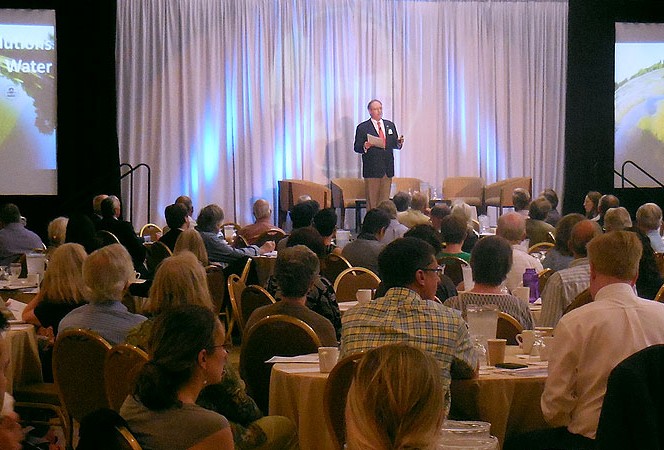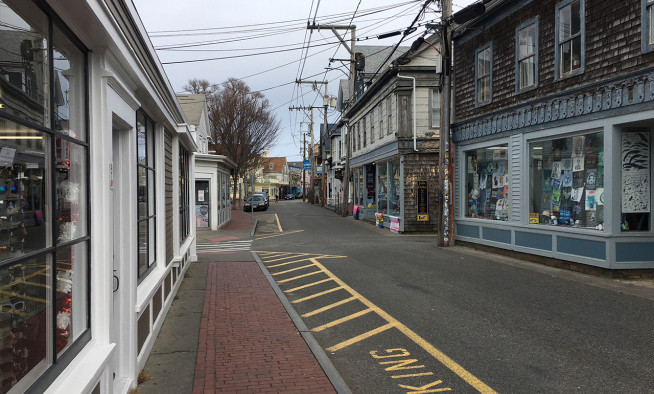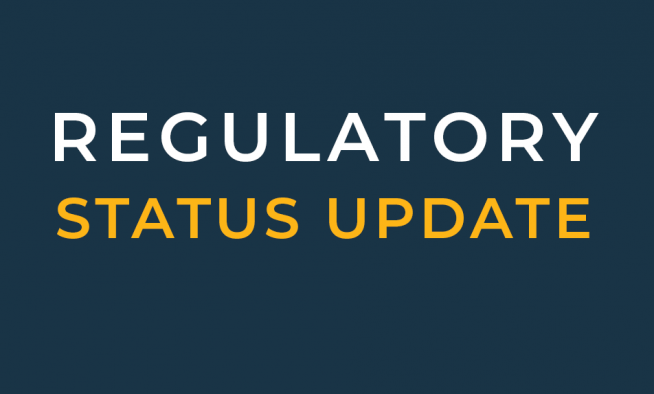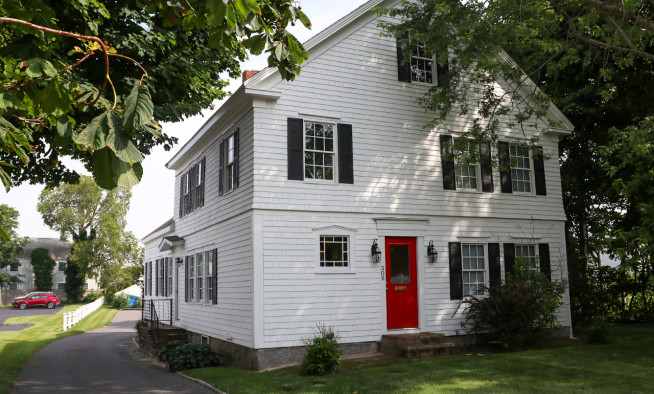OneCape Summit looks back and forward

U.S. EPA Region 1 Administrator Curt Spalding addresses the first day audience at the June 23-24 OneCape Summit in Hyannis.
The Cape Cod Commission hosted the third wastewater-oriented summit for Cape Cod municipal leaders and residents over two days, June 23 and 24 at the Cape Cod Resort and Conference Center in Hyannis.
The OneCape Summit featured breakout sessions on aspects of Section 208 Plan implementation, panel discussions on technologies, implementing solutions and a panel of state and federal regulators
Commission Executive Director Paul Niedzwiecki gave two presentations at the summit, one wrapping up the past 12 months of 208 Plan implementation and another looking at the year to come.
The 208 plan has come a long way, and the last year has been a learning experience, Niedzwiecki said. Cape Cod’s nitrogen problem needs to be addressed quickly and completing all of the steps required by the 208 plan takes time. Each town and watershed are moving at different speeds, the Commission responded to this by creating different watershed teams based on where each town is in the process.
The upcoming year will focus on cooperation between towns in shared watersheds. Niedzwiecki said the goal is to create a more specific planning process and plans that really work for the towns for which they are created. Towns will need to work together to make the plans both environmentally acceptable and economically viable. He said the Commission’s goal is to simplify this process.
Regulation
Commission Deputy Director Kristy Senatori opened up the Regulation Breakout Session by briefly talking about how to simplify the Comprehensive Wastewater Management Plan permit process. Right now the steps are complicated, time consuming and difficult to navigate for most towns. As an example, she said in 2009 Orleans applied for a CWMP, it took 20 months to get through Massachusetts’ process, and seven months more to get through the Cape Cod Commission process. Both the Commission and the Department of Environmental Protection agree that this is too long.
Building off of what Senatori discussed, MassDEP Deputy Regional Director David Johnston described changes that his agency is making to the permitting process. The Watershed Permit Program is geared towards non-traditional techniques and regionalization. They have streamlined the entire process by making the permit an umbrella permit, it will cover most watershed permitting with just one permit.
Keynote Speakers
EPA Region 1 Administrator Curt Spalding said his approach is holistic. Community engagement is one of the most important parts of moving forward with environmental plans. Mr. Spalding said that the Cape Cod Commission is a great example of how a good faith collaboration can be effective when implementing a region wide plan.
Former Senate President Therese Murray addressed the Meeting of the Cape Cod Selectmen and Councilors Association, which was convened as part of the evening. Ms. Murray was in the Senate when the 208 plan was being worked on, and was essential to getting funding sent to the Cape. The original wastewater regulations were focused on urban areas, not rural areas, they were very difficult to apply to places like the Cape. During her presentation she advocated for simplifying regulatory burdens, specifically Title 5.
State Senator Dan Wolf is in his last term representing the Cape and Islands. Sen. Wolf spoke to the summit about the importance of community engagement as well. He also believes that all of the towns are going to have to work together. He said that the Capewide nature of the plan means that all of the Cape towns will have to commit to paying for a community-wide plan.




